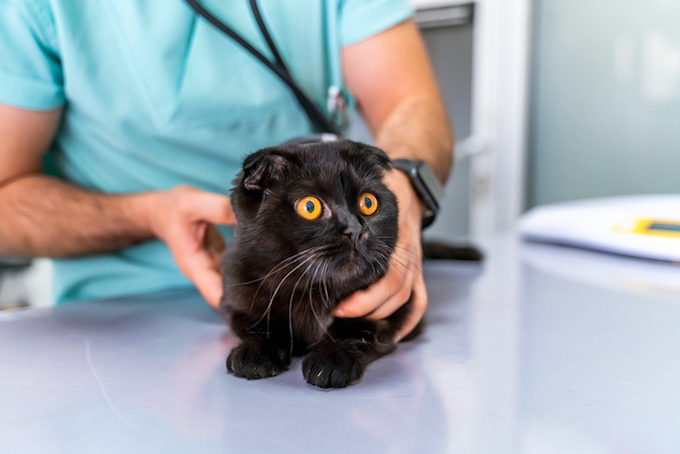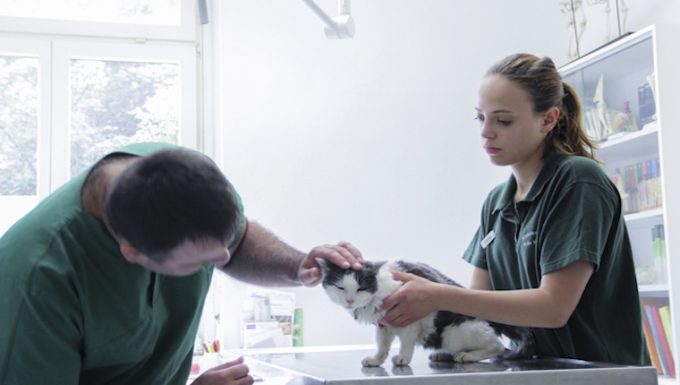Hypoglycemia in cats often happens when a cat’s blood sugar levels drop too low. Unfortunately, the condition can be fatal if not treated quickly.
Generally, the condition is caused by another underlying condition.
Technically, the condition is also known as low blood sugar in cats.
If you see the signs of the condition in your cat, then get to a veterinarian for a proper diagnosis and treatment.
Here’s what you should know about the symptoms, causes, and treatments for the condition.
Symptoms of Hypoglycemia in Cats
The condition produces a very wide range of symptoms. For example, some of the most common symptoms include:
- Vomiting
- Lack of coordination
- Weakness
- Acting lethargic
- Seizure
- Anxiety
- Blindness
- Weakness
- Head tilting
- Tremors
- Breathing very quickly
- Dilated pupils
- Increased appetite
Causes of Hypoglycemia in Cats

The cause of the condition is usually another underlying condition. For instance, some of the most common underlying causes include:
- Diabetes
- Infection
- Hormonal issues
- Kidney disease
- Heatstroke
- Anorexia
- Toxins
- Addison’s disease
- Hepatic lipidosis
Treatments for Hypoglycemia in Cats
Firstly, your vet will ask about your cat’s symptoms. Secondly, your vet will ask about any recent changes in your cat’s behavior. Also, your vet will ask about any symptoms your cat is showing.
Thirdly, a full physical examination will be carried out. Blood and urine tests will be taken. Additionally, testing your cat’s blood glucose levels can diagnose the condition.
Usually, treatment aims to raise the glucose levels in your cat’s blood. For example, products containing glucose can be applied directly to your cat’s gums. Although never attempt this without advice from your vet. Also, in some cases, glucose can be administered intravenously in hospital.
Additionally, your cat’s diet may need to be modified to help with their recovery. Your vet can help to formulate a safe and nutritious diet for your cat.
Have you ever cared for a cat who suffered from this condition? How did your vet help your kitty recover? Let us know in the comments section below.





